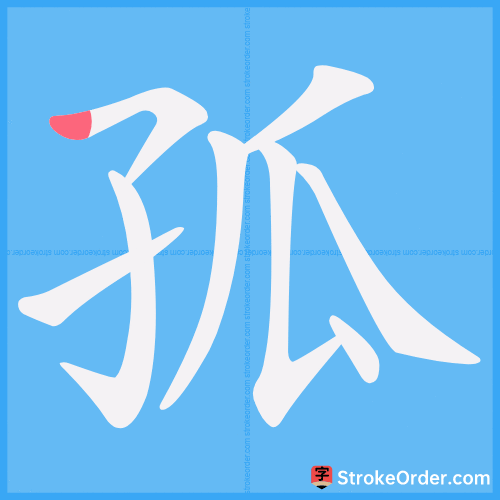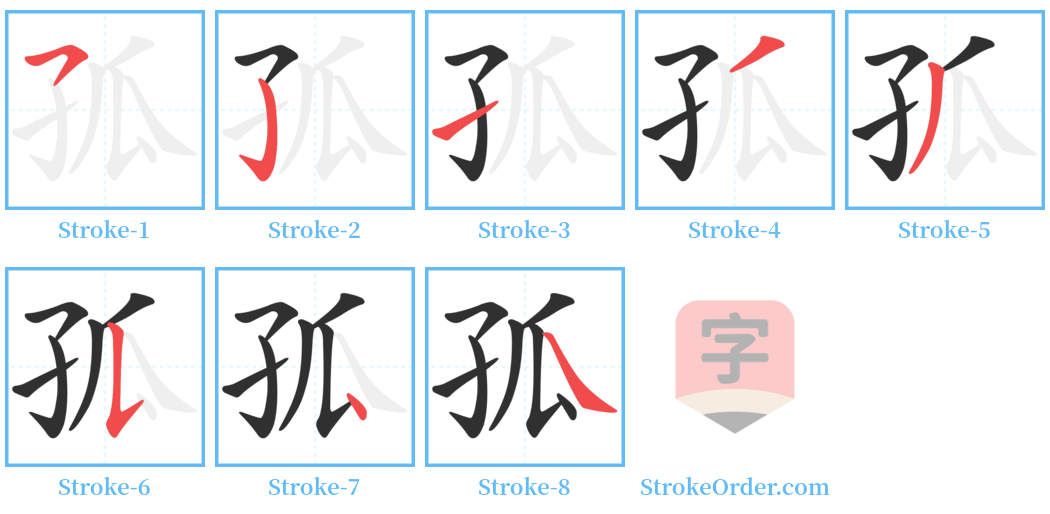孤 Stroke Order
Animated Stroke Order of 孤

Stroke Order Diagrams for 孤

Step-by-Step Handwriting Guide for 孤

Learn to Write Chinese Characters with Video Tutorials
Watch the video of writing the Chinese character "孤", learn the correct stroke order (笔顺) of the character "孤", and master the standard way of writing the character "孤".
Free Printable Handwriting Practice with Stroke Order: 孤
Printable Writing Practice Worksheet of "孤" in Portrait Orientation (Tian Zi Ge)

Printable Writing Practice Worksheet of "孤" in Landscape Orientation (Tian Zi Ge)

Information of 孤
Pinyin
gū
Radical
子
Strokes
8 strokes
Usage
★★★★★
Definition
lone / lonely
孤
[gū]
【Noun】
1. Orphan; a child whose father has died in childhood or both parents have died.
Examples: 孤儿 (orphan), 遗孤 (orphaned child)
2. Alone; solitary.
Examples: 孤单 (lonely), 孤独 (isolate)
3. Ancient emperors' self-reference.
Examples: 孤家 (the lonely family), 孤王 (the lonely king)
4. An ancient synonym for 辜, meaning to betray or let down.
【Adjective】
1. Lonely; solitary; isolated; alone.
Examples: 孤冷 (lonely and cold), 孤独 (lonesome)
2. Arrogant; proud.
Example: 孤高 (to be proud and lofty)
3. Unique; distinctive.
Examples: 孤音 (unique sound), 孤艳 (uniquely beautiful)
【Verb】
1. To betray; to let someone down; to be ungrateful.
Examples: 孤负 (to betray)
2. To isolate.
Example: 孤立于 (to be isolated from)
引
《说文》: 孤,无父也。 (An orphan has no father.)
《礼记》: 三十以下无父称孤。 (Anyone under thirty without a father is called an orphan.)
《意识到的例子》: 孤驹 (a foal without a mother), 孤疾 (orphan and disabled person).
lit. lone army putting up a brave fight (idiom) / fig. (of a person or group of people) struggling hard without support
It's hard to clap with only one hand. / It takes two to tango / It's difficult to achieve anything without support.
one who is cut off from others (idiom) / one who has chosen to follow a solitary path / (can also be an indirect way of referring to an unmarried person)
Input Method for 孤
Pinyin
gu1
Wubi
brcy
Cangjie
ndhvo
Zhengma
yaps
Four Corner
12430
Unicode
U+5b64
Same Pronunciation Characters